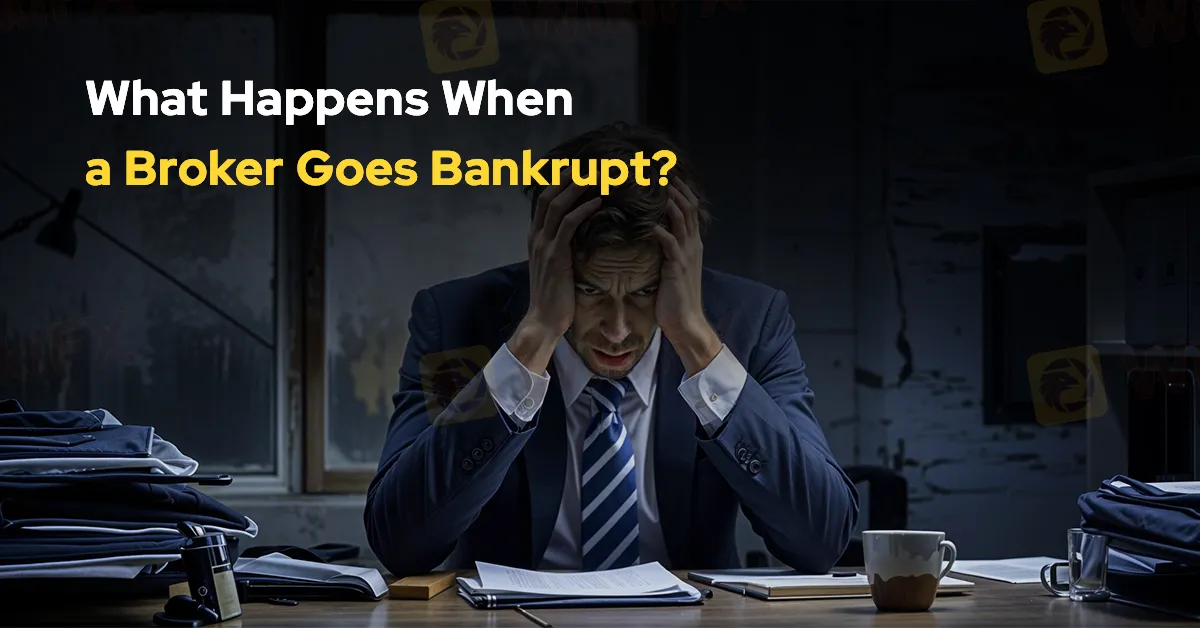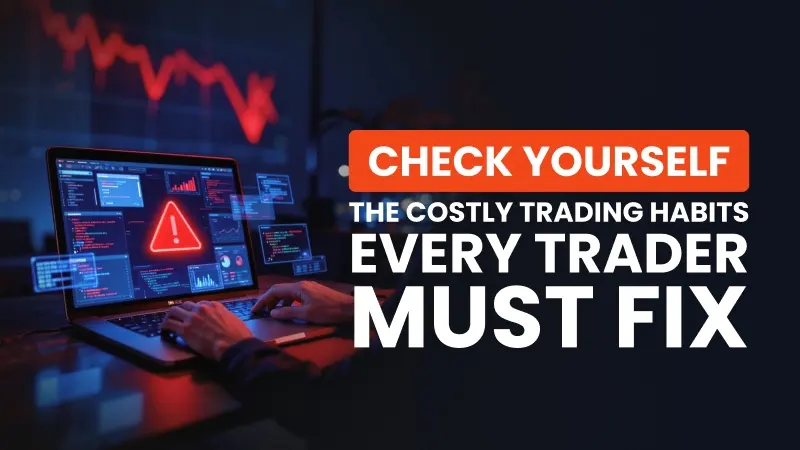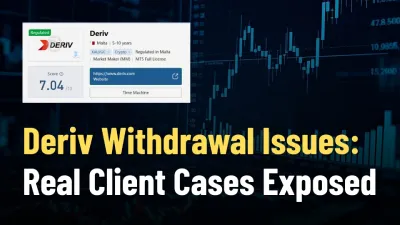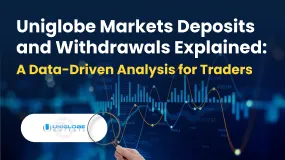简体中文
繁體中文
English
Pусский
日本語
ภาษาไทย
Tiếng Việt
Bahasa Indonesia
Español
हिन्दी
Filippiiniläinen
Français
Deutsch
Português
Türkçe
한국어
العربية
What Happens When a Broker Goes Bankrupt?
Abstract:Many trust brokers to hold their funds securely and facilitate their trades. However, when a broker collapses, the situation can become uncertain. Knowing what happens in such cases can help traders prepare and reduce potential losses.

The thought of a broker going bankrupt can be terrifying for traders. Many trust brokers to hold their funds securely and facilitate their trades. However, when a broker collapses, the situation can become uncertain. Knowing what happens in such cases can help traders prepare and reduce potential losses.
When a broker declares bankruptcy, the first concern is client funds. In many countries, brokers must keep client funds in segregated accounts. These accounts are separate from the broker‘s operational funds. This requirement ensures that client money is protected if the broker’s finances fail. However, not all brokers follow this rule, especially those operating in poorly regulated regions.
Regulators play a key role in managing broker insolvencies. In well-regulated markets, authorities step in to oversee the process. For example, in the UK, the Financial Conduct Authority (FCA) ensures that client funds are returned as a priority. Compensation schemes like the Financial Services Compensation Scheme (FSCS) also exist to protect clients. Under the FSCS, traders may receive compensation up to a certain limit if their broker fails.
In poorly regulated markets, the situation is more complex. Traders may struggle to recover funds. Brokers in these regions often lack safeguards like segregated accounts or compensation schemes. Without proper regulation, clients are left exposed to greater risks.

Another factor is whether the broker offers negative balance protection. If a trader‘s account balance goes negative during a broker’s financial trouble, it can complicate the claims process. Brokers offering this protection absorb client losses, but those that do not may hold traders responsible for debts.
The bankruptcy process can be lengthy. Administrators are appointed to assess the broker‘s finances and liabilities. They prioritise claims based on local laws and regulations. Traders must file claims to recover their funds. Depending on the broker’s financial health, recovery can take months or even years.
Fraudulent brokers present additional challenges. Some brokers declare bankruptcy to avoid paying clients. These cases often involve legal battles. Authorities must determine whether the broker acted in bad faith. Clients of fraudulent brokers may face greater difficulty in recovering their money.
To reduce risks, traders should choose brokers with strong regulatory oversight. Brokers regulated by authorities like the FCA or the Australian Securities and Investments Commission (ASIC) provide greater security. Always check if a broker holds client funds in segregated accounts. Researching a brokers financial stability is also important.
Broker bankruptcy is rare, but it is not impossible. Traders must remain vigilant and informed to safeguard their investments. Download the free WikiFX mobile application to conduct due diligence effortlessly.

Disclaimer:
The views in this article only represent the author's personal views, and do not constitute investment advice on this platform. This platform does not guarantee the accuracy, completeness and timeliness of the information in the article, and will not be liable for any loss caused by the use of or reliance on the information in the article.
Read more

Check Yourself: The Costly Trading Habits Every Trader Must Fix
Are the trading habits you barely notice the very ones quietly destroying your profits, and could a single overlooked mistake be costing you far more than you realise?

Scandinavian Capital Markets Exposed: Traders Cry Foul Play Over Trade Manipulation & Fund Scams
Does Scandinavian Capital Markets stipulate heavy margin requirements to keep you out of positions? Have you been deceived by their price manipulation tactic? Have you lost all your investments as the broker did not have risk management in place? Were you persuaded to bet on too risky and scam-ridden instruments by the broker officials? These are some burning issues traders face here. In this Scandinavian Capital Markets review guide, we have discussed these issues. Read on to explore them.

Deriv Withdrawal Issues: Real Client Cases Exposed
Deriv exposed via client cases of withdrawal issues, 13‑month refund delays, severe slippage, and disabled accounts despite multiple “regulated” licenses.

Uniglobe Markets Deposits and Withdrawals Explained: A Data-Driven Analysis for Traders
For any experienced trader, the integrity of a broker isn't just measured in pips and spreads; it's fundamentally defined by the reliability and transparency of its financial operations. The ability to deposit and, more importantly, withdraw capital seamlessly is the bedrock of trust between a trader and their brokerage. When this process is fraught with delays, ambiguity, or outright failure, it undermines the entire trading relationship. This in-depth analysis focuses on Uniglobe Markets, a broker that has been operational for 5-10 years and presents itself as a world-class trading partner. We will move beyond the marketing claims to scrutinize the realities of its funding mechanisms. By examining available data on Uniglobe Markets deposits and withdrawals, we aim to provide a clear, evidence-based picture for traders evaluating this broker for long-term engagement. Our investigation will be anchored primarily in verified records and user exposure reports to explain the Uniglobe Mar
WikiFX Broker
Latest News
Gratitude Beyond Borders: WikiFX Thank You This Thanksgiving
MH Markets Commission Fees and Spreads Analysis: A Data-Driven Breakdown for Traders
Alpha FX Allegations: Traders Claim Account Blocks, Withdrawal Denials and Security Breaches
How to Become a Profitable Forex Trader in Pakistan in 2025
CFTC Polymarket Approval Signals U.S. Relaunch 2025
Zipphy Exposed: No Valid Regulation, Risk Warning
KEY TO MARKETS Review: Are Traders Facing Withdrawal Delays, Deposit Issues & Trade Manipulation?
FCA Consumer Warning – FCA Warning List 2025
Australia’s Fraud-Intel Network Exposes $60M in Scams
Malaysia’s SkyLine Guide Top 25 Brokers Are Out!
Currency Calculator



